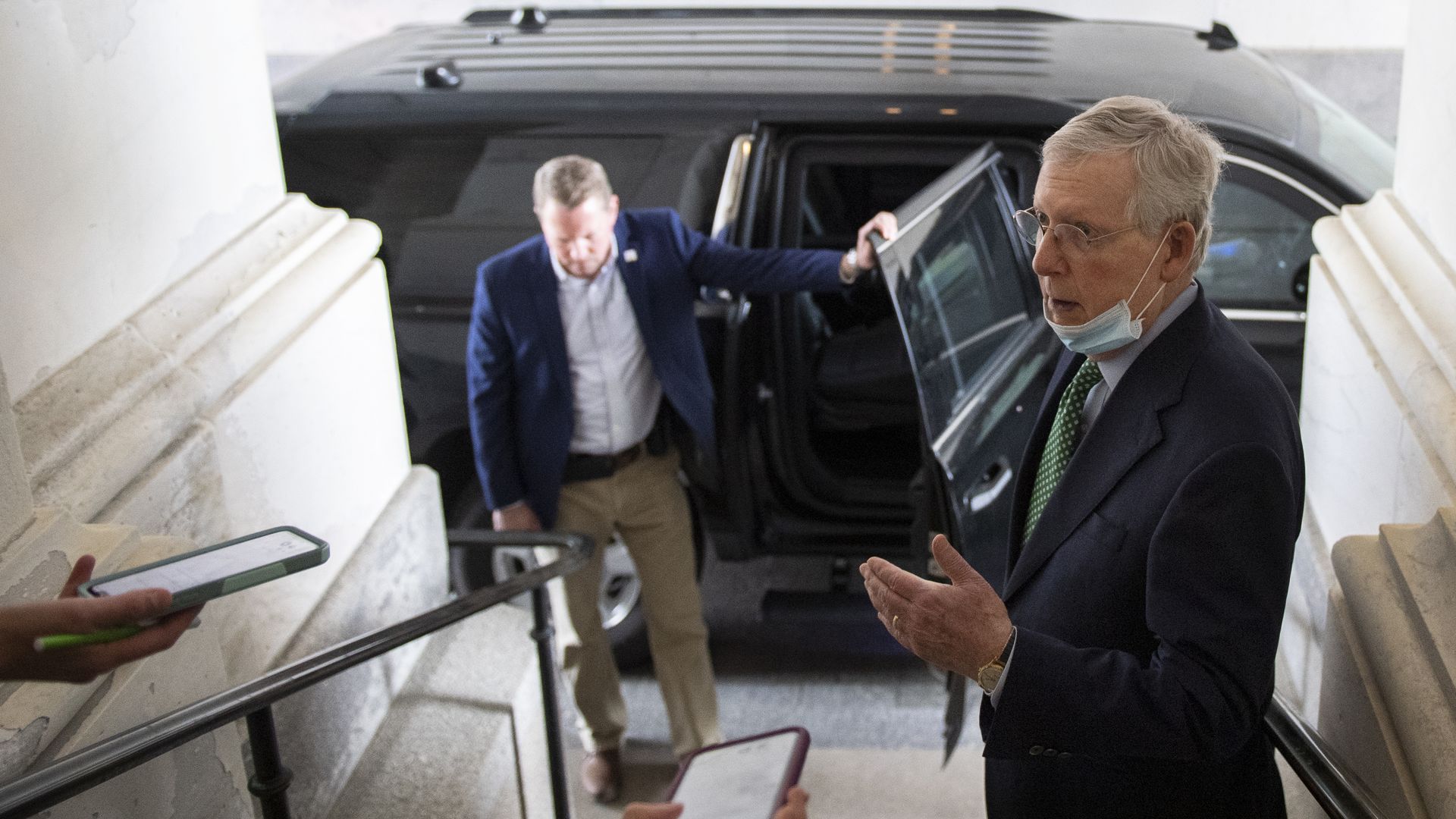Updated Apr 21, 2020 - Politics & Policy
Senate passes $484 billion interim coronavirus funding bill
Add Axios as your preferred source to
see more of our stories on Google.

Senate Majority Leader Mitch McConnell talks to reporters at the Capitol. Photo: Caroline Brehman/CQ-Roll Call via Getty Images
